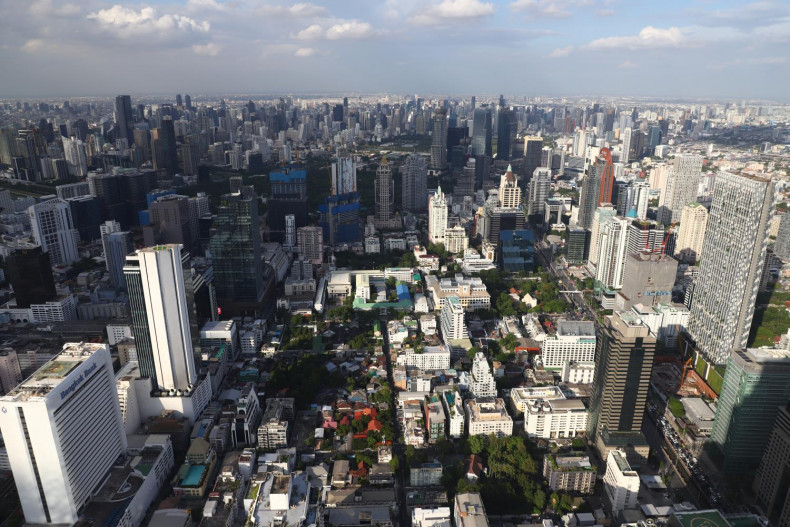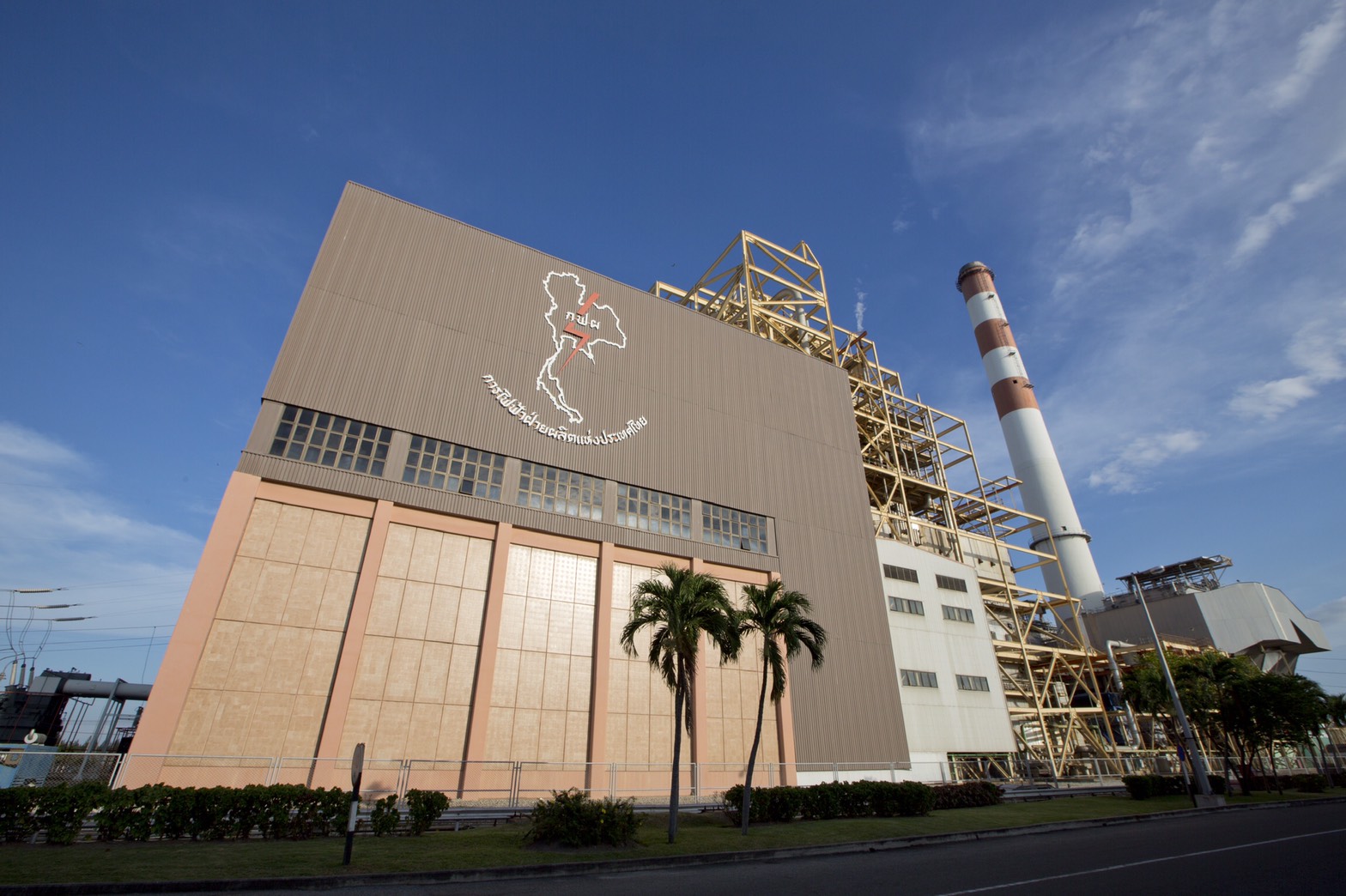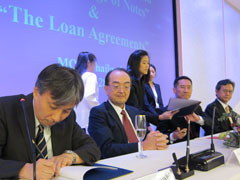
Trying to create a fairer property tax in Thailand
Review of the law must address evasion and unequal rates
The Finance Ministry is reviewing the Land and Building Tax Act. Public hearings were conducted to gather opinions from the public and stakeholders.
The law has been in effect for five years, marking a significant phase in reforming the country’s property-based tax regime.
Finance permanent secretary Lavaron Sangsnit said the amended version of the land and building tax law will represent a major reform of the country’s property tax laws.
– Why does this tax law need a review?
The law has been in effect since March 13, 2019, though tax collection started on Jan 1, 2020.
This year marks the fifth year of its implementation. According to the 2015 Royal Decree on Law Appropriateness Reviews, to ensure the provisions of laws are suitable, fair, not excessively burdensome to the public, and in line with contemporary life and technological advancements, the minister responsible must review the appropriateness of laws every five years from enforcement.
The land and building tax replaced the house and land tax and the local maintenance tax. These previous property tax laws had several problems, such as excessive discretionary power for tax assessors, multiple tax rates and lack of fairness.
With previous property taxes, the higher the land value, the lower the tax compared with land assessed at a lower value. The land and building tax is meant to address these shortcomings of previous property taxes.
– What are the key issues to review?
In the five years the tax has been collected, several issues have emerged that concerned many taxpayers. One involves wealthy landowners in urban areas who do not utilise their land appropriately.
Unused land carries the highest tax rates, described in the law as “vacant land not used appropriately”, which is taxed at an initial rate of 0.3%. For instance, land valued at 1 million baht would incur a tax of 3,000 baht.
Agricultural land is taxed at an initial rate of 0.01%, meaning land valued at 1 million baht incurs a tax of only 100 baht. As a consequence, many landowners in densely packed urban centres planted fruit and vegetables on their plots to avoid higher tax rates.
Previously the Bangkok Metropolitan Administration (BMA) proposed a revision to the Finance Ministry suggesting areas where vacant land is repurposed for agriculture should be classified as “simulated agriculture” and taxed at higher rates.
The BMA estimated that since the current property tax regime started, it has lost 800 million baht in tax revenue a year because of simulated agriculture.
Private real estate firms also had suggestions for revising the law. For example, they proposed public service areas in housing projects, such as roads, project entrances and clubhouses, be taxed at the same rate as residential land, meaning a tax of 200 baht for land valued at 1 million baht instead of the commercial rate of 3,000 baht for land assessed at 1 million baht.
The companies also recommended unsold houses and condos, currently taxed at commercial rates, should be taxed at residential rates because they are not being used for commercial purposes.
– Do the laws create tax inequality?
Bangkok governor Chadchart Sittipunt said in certain districts of Bangkok, such as Phaya Thai, implementation of the new tax resulted in a decrease in tax revenue, falling from 300 million baht with the previous laws to 200 million.
This means the new law is failing to address tax inequality effectively, he said. An example is a department store in the Phaya Thai district that previously paid 10.7 million baht in tax revenue annually under the former property tax laws. Under the new property tax, the store’s tax burden dropped to 1.08 million baht, a tenfold decrease, said Mr Chadchart.
He said under the old system, taxes were calculated based on the sales and rental income of a store at a rate of 12.5% of the average rental income. However, the land and building tax calculates the rate based on the value of the land. If a building is old, depreciation costs are allowed, reducing the tax burden of a store to 10% from 12.5%.
Mr Lavaron said he views the land and building tax as fair because it applies a single rate to all land and buildings based on their values. Previous tax laws had multiple rates ranging from low to high, with some landowners assessed lower rates, creating tax inequality, he said.
From a revenue perspective, the government’s income should increase over the long term because the land and building tax is based on the value of land and buildings, which naturally appreciates over time, said Mr Lavaron.
He estimated this year, revenue from the tax could reach 43 billion baht, up 8 billion from the previous year.
Initial enforcement of the tax coincided with the pandemic’s first year, which suffocated the Thai economy. To alleviate the tax burden on the public, the government cut the property tax burden by 90% for individual taxpayers until 2021, with full collection starting in 2022. In 2023, the government reduced the property tax burden by 15%.
In the first year of tax collection, there were only 7 million taxpayers. By 2022, the number rose to 16 million.
Property tax revenue belongs to local governments, which are responsible for surveying land use because different types of land use are taxed at different rates.
The BMA said it has completed 99.4% of land use assessments, covering 2.1 million plots of land, 2.2 million houses and 1 million condo units.
– Will the Finance Ministry increase this tax?
The ministry is unlikely to increase the tax rates, meaning the base rate set by the Land and Building Committee, which serves as the minimum rate for local governments to use, will not be increased.
However, local governments can raise the rates as they see fit, provided they do not fall below the minimum rate set.
Mr Lavaron insisted the tax law is modern because it allows local governments to adjust tax rates as appropriate.
The tax rate system under this law sets both a maximum and minimum or base rate, as determined by the committee. For example, the maximum rate for residential land is set at 0.3%, while the minimum rate starts at 0.02% and can rise to 0.1%, depending on the value of the land and buildings.
He said the implementation issues of the tax law, particularly tax evasion by owners of prime unused urban land who plant limes or bananas to qualify as agricultural land, must be addressed.
Bangkok and Pattaya, which are more developed than other local administrative organisations in the country, need to take bold steps to determine whether such land use is genuinely agricultural or intended to evade taxes, said Mr Lavaron.
He said this law clearly defines vacant land as land that is not being used according to its potential.
The ministry already sought public opinions on the law, with the feedback period ending earlier this month and the government receiving more than 500 responses.
The review of the law is expected to be concluded by the end of this year, said Mr Lavaron.
Source: https://www.bangkokpost.com/business/general/2810209/trying-to-create-a-fairer-property-tax



